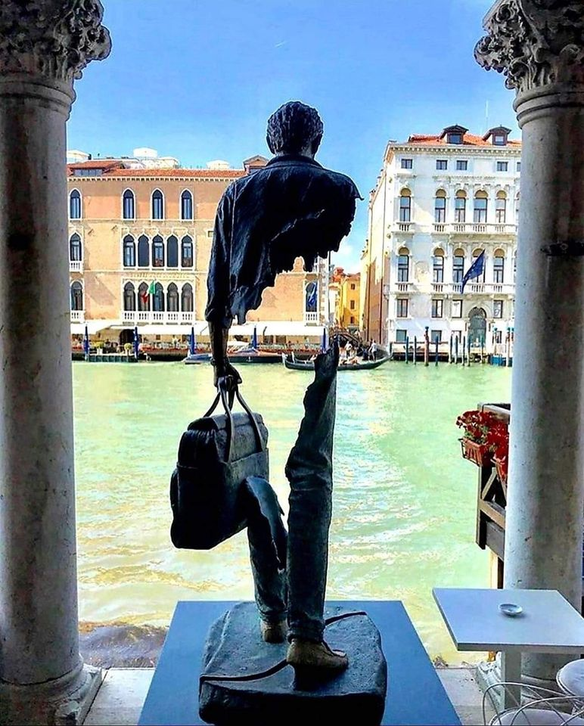If you’re a businessman, you shouldn’t be able to deduct money spent on the clothes you wear every day.
This is still the case even if formal attire is mandated by some other factor, such as the regulations of a professional organisation.
No deduction is allowed from trading profits for the costs of clothing that form part of a “daily wardrobe,” as established by the case of Mallalieu v Drummond [1983] 57 TC 330 (which is explored in full below).
This is true even if the taxpayer can prove they only wear the garments in question when doing their job duties.
It is irrelevant that the person chooses not to wear the clothing in question on non-business occasions. The only question is whether the clothing might suitably be worn as part of a hypothetical person’s ‘everyday’ wardrobe.
Most professionals are required to maintain their appearances. Yet, the expenses of their apparel are not tax deductible (even where they amount to a quasi-uniform, as in Mallalieu v Drummond).
Mallalieu (Respondent)
v
Drummond (Inspector of Taxes) (Appellant)
[1983] UKHL J0727-1

The taxpayer was a barrister.
To comply with Bar guidance on court dress, she wore, in court and in and to and from chambers, black dresses, suits and shoes and white blouses.
The clothing was perfectly ordinary articles suitable for everyday wear.
But for her professional requirements, she would not have purchased those clothes.
She had other clothes to keep her comfort and decency.
The preservation of warmth and decency was not a consideration which crossed her mind when she bought the clothes.
In computing the profits of her profession in the year of assessment 1977-78, the taxpayer claimed that the sum she had spent on the replacement, laundering and cleaning of the clothes she wore in court was expenditure incurred wholly and exclusively . .

for the purpose of her profession, the taxpayer spent a total of £564.38 on the following items of expenditure:
- Black tights – £50.00
- Black shoes – £65.97
- Black suits – £133.79
- Black dresses – £73.44
- Shirts – £134.18
- Replacement collar – £7.00
- Laundry and cleaning – £100.00
The issue in this appeal is whether the disbursements of the appellant taxpayer in the relevant years on replacements, laundering and cleaning of the clothes she wore during the practice of her profession of barrister were “wholly and exclusively laid out or expended for the purposes of her profession”: see section 130 of the Income and Corporation Taxes Act 1970.
The High Court and the Court of Appeal found for the taxpayer, but the House of Lords, by a majority of four to one, found for the Crown.
General Commissioners
On appeal to the General Commissioners against the Inspector’s disallowance under s 130(a) of the Income and Corporation Taxes Act 1970 of her expenditure on, and the laundry expenses of, such clothes, it was contended on her behalf that the test whether her expenditure was “ wholly and exclusively” incurred “ for the purpose of her profession” was subjective and that her expenditure did not cease to be wholly and exclusively incurred for such purposes simply because in addition to achieving a professional purpose it achieved an additional incidental effect. The General Commissioners dismissed the appeal
As stated in the case stated, the Commissioners found, after hearing oral testimony from the appellant, which their findings indicate they accepted, that:-

- the appellant would not have have incurred any of the expenditure on the items of clothing in question had it not been for the requirement of her profession that she should comply when appearing in Court with the Notes for Guidance of the Bar Council (which are quoted in the speech of my noble and learned friend Lord Brightman);
- at all material times, she had a private wardrobe of clothes and shoes which were amply sufficient to keep her clothed and shod in comfort and decency;
- the preservation of warmth and decency was not a consideration which crossed her mind when she bought the disputed items;
- she bought the items only because she would not have been permitted to appear in Court if she did not wear them in Court, or other clothes like them.
It was common ground that the relevant time for determining what were the appellant’s purposes and what was in her mind when the expenditure was incurred was at the moment the expenditure was made.

The Commissioners did look into the appellant’s mind (as far as humans can look into the minds of others).
They found that “when Miss Mallalieu laid out money on clothes for wearing in Court, her purpose in making that expenditure was to enable her to earn profits in her profession and also to enable her to be properly clothed during the time she was on her way to chambers or to Court and while she was thereafter engaged in her professional activity.”
This apparently is, in fact, what she said, and their findings of fact indicate that they believed her.
The test as to why the expenditure was incurred is subjective.
As Romer L.J. stated in Bentleys, Stokes and Lowless v. Beeson [1952] 2 All E.R., 84 [1952] 2 All E.R., 84 – 85:
"The sole question is: what was the motive or object in the mind of the (individual) in question".
This proposition was affirmed by Walton J. in Robinson v. Scott Bader [1980] 1 W.L.R. and by the Court of Appeal [1981] 1 W.L.R. 1135.
The Commissioners concluded that the expenditure had a dual purpose, one professional and one non-professional. The taxpayer appealed.
The High Court and the Court of Appeal

The High Court reversed the decision of the Commissioners, and its decision was affirmed by the Court of Appeal, which held that the only proper and reasonable conclusion on the findings of fact made was that the taxpayer’s sole purpose in incurring the expenditure was to satisfy the requirements of her profession.
The Crown appealed.
In the House of Lords
The Crown’s appeal was heard in the House of Lords (Lords Diplock, Elwyn-Jones, Keith of Kinkel, Roskill and Brightman) on 30 June 1983 when judgment was reserved.
On 27 July 1983, judgment was given in favour of the Crown, but Lord Elwyn-Jones dissented.
Hence, the inspector’s appeal succeeded.
Judgment of Lords
1. Lord Elwyn-Jones dissented and concluded:-

Applying that test, I respectfully agree with the conclusions of Slade J. and the Court of Appeal that the Commissioner’s findings of fact, in this case, led inevitably to the conclusion that the appellant’s expenditure was expended wholly and exclusively for the purposes of her profession.
It was, in my view, not open to the Commissioners, given their findings of fact as to the appellant’s purposes, to conclude that, as in this case, the clothing was suitable for private as well as for professional use, one of her purposes must have been to spend money on the clothing for her private use.
This, in my view, was to disregard the evidence they accepted as to her actual motive and purpose.
This, they have found, was to enable her to carry on her profession.

Other benefits derived from the expenditure, namely that the clothing also provided her with warmth and decency, were purely incidental to the carrying on of her profession in the compulsory clothing she had to wear.
I am naturally diffident in disagreeing with my noble and learned brethren. Still, I find the conclusions made by Slade J. and the Court of Appeal inescapable, given the Commissioners’ findings of the primary facts in this case.
I would dismiss the appeal.
Lord Elwyn-Jones
2. Lord Roskill gave in favour of the Crown
For the reasons given in the speech to be delivered by my noble and learned friend, Lord Brightman, which I have had the opportunity of reading in the draft and with which I agree,
I, too, would allow the appeal.
Lord Roskill

3. Lord Keith of Kinkel gave in favour of the Crown
My Lords, for the reasons given in the speech to be delivered by my noble and learned friend, Lord Brightman, which I have had the opportunity of reading in the draft and with which I agree.
I, too, would allow the appeal.
Lord Keith of Kinkel
4. Lord Brightman gave in favour of the Crown
I am in complete agreement with Goulding J., and I regard his observations as appropriate in their entirety to the case before your Lordships. G So, my Lords,
I respectfully differ from the conclusion reached by Slade J. and by the members of the Court of Appeal.
I would allow this appeal.
Lord Brightman
Lord Brightman’s Judgment

The object of incurring such expenditure was both to serve the purposes of the barrister’s profession and also to serve her personal purposes.
The words ‘expended for the purposes of the . . profession’ in section 130(a) meant ‘expended to serve the purposes of the . . profession’, and ‘purposes’ in this context referred to the purposes of the business.
To decide whether money was expended to serve the purposes of the taxpayer’s business, it is necessary to discover the taxpayer’s object in making the expenditure.
Though the taxpayer’s conscious motive was of vital significance in ascertaining her object, it was not decisive, and the Commissioners were entitled to find on the facts that as the taxpayer had to wear something, one object was the provision of the clothing that she needed as a human being. It followed that the expenditure was not incurred wholly and exclusively for the purposes of her profession.
The part of Lord Brightman’s judgment describing the applicable legislation and its interpretation

‘The effect of S34(1)(a) ITTOIA 2005 is to exclude, as a deduction, the money spent by the taxpayer unless she can establish that such money was spent exclusively for the purposes of her profession.
The words in the paragraph ‘expended for the purposes of the trade, profession or vocation’ mean, in my opinion, ‘expended to serve the purposes of the trade, profession or vocation; or . . ‘to enable a person to carry on and earn profits in the trade etc.’
The particular words emphasised do not refer to “the purposes” of the taxpayer as some of the cases appear to suggest; . .
They refer to “the purposes” of the business, which is a different concept. However, the ‘purposes’ (i.e. the intentions or objects) of the taxpayer are fundamental to the application of the paragraph.
The effect of the word ‘exclusively’ is to preclude a deduction if it appears that the expenditure was not only to serve the purposes of the trade, profession or vocation of the taxpayer but also to serve some other purposes. Such other purposes, if found to exist, will usually be the private purposes of the taxpayer . .
The part of Lord Brightman’s judgment describing the process to follow

To ascertain whether the money was expended to serve the purpose of the taxpayer’s business, it is necessary to discover the taxpayer’s ‘object’ in making the expenditure: see Morgan -v- Tate and Lyle Ltd [1955] AC 21 at 37 and 47.
As the taxpayer’s ‘object’ in making the expenditure has to be found, it inevitably follows that (save in obvious cases which speak for themselves) the commissioners need to look into the taxpayer’s mind at the moment when the expenditure is made.
After events are irrelevant to the application of s.130 except as a reflection of the taxpayer’s state of mind at the time of the expenditure.
If it appears that the taxpayer’s object at the time of the expenditure was to serve two purposes, the purposes of his business and other purposes, it is immaterial to the application of s.130 (a) that the business purposes are the predominant purposes intended to be served.
The object of the taxpayer in making the expenditure must be distinguished from the effect of the expenditure.
An expenditure may be made exclusively to serve the purposes of the business, but it may have a private advantage. The existence of that private advantage does not necessarily preclude the exclusivity of the business purposes.
For example, a medical consultant has a friend in the South of France who is also his patient. He flies to the South of France for a week, staying in the home of his friend and attending professionally to him. He seeks to recover the costs of his airfare.

The question of fact will be whether the journey was undertaken solely to serve the purposes of the medical practice. This will be judged in the light of the taxpayer’s objectification in making the journey.
The question will be answered by considering whether the stay in the South of France was a reason, however subordinate, for undertaking the journey or was not a reason but only the effect.
If a week’s stay on the Riviera was not an object of the consultant, if the consultant’s only object was to attend to his patient, his stay on the Riviera was an unavoidable effect of the expenditure on the journey, and the expenditure lies outside the prohibition in s.130.
Lord Brightman went on to describe the approach taken in the High Court and the Court of Appeal:-
As the taxpayer, according to the undisputed evidence, had nothing in her mind except the etiquette of her profession on the several occasions when she spent money on the upkeep of her wardrobe of working clothes and ‘had no thought of warmth and decency’, it inevitably followed that the money was spent exclusively to serve the purposes of her business.
The provision of clothing as such, it was held, was nothing more than an incidental, although no doubt welcome, the effect of her one and only object. The approach of the Court of Appeal was similar. i.e.:-
“ From those findings of fact, there is in my judgment only one reasonable conclusion E to be drawn, namely, that the taxpayer’s sole purpose in incurring the expenditure was a professional purpose, any other benefit being purely incidental.”
The part of Lord Brightman’s judgment explaining why he could not follow the narrow approach of the lower courts
Lord Brightman concluded:-
‘My Lords, I find myself totally unable to accept this narrow approach.

Of course, the taxpayer thought only of the requirements of her profession when she first bought (as a capital expense) her wardrobe of subdued clothing and, no doubt, as and when she replaced items or sent them to the launderers or the cleaners she would, if asked, have repeated that she was maintaining her wardrobe because of those requirements.
It is a natural way that anyone incurring such expenditure would think and speak.
But she needed clothes to travel to work and clothes to wear at work, and I think it is inescapable that one object, though not a conscious motive, was the provision of the clothing she needed as a human being.
I reject the notion that the object of a taxpayer is inevitably limited to the particular conscious motive in mind at the moment of expenditure. Of course, the motive of which the taxpayer is conscious is of vital significance. Still, it is not inevitably the only object the commissioners are entitled to find to exist.
In my opinion, the commissioners were not only entitled to conclude that the taxpayer’s object was both to serve the purposes of her profession and also to serve her personal purposes, but I would have found it impossible to reach any other conclusion.
The part of Lord Brightman’s judgment explaining why the costs of uniforms and protective clothing are not disallowed

It was inevitable in this sort of case that analogies would be canvassed; for example, the self-employed nurse who equips herself with what is conveniently called a nurse’s uniform.
Such cases are matters of fact and degree.
In the case of the nurse, I am disposed to think, without inviting your Lordships to decide, that the material and design of the uniform may be dictated by the practical requirements of the art of nursing and the maintenance of hygiene.
There may be other cases where it is essential that the self-employed person should provide himself with and maintain a particular design of clothing to obtain any engagements at all in the business that he conducts.

An example is a self-employed writer, mentioned by Kerr LJ, who needs to wear ‘tails’.
In his case, the ‘tails’ are an essential part of the equipment of his trade, and it clearly would be open to the commissioners to allow the expense of their upkeep on the basis that the money was spent exclusively to serve the purposes of the business.
I do not think that the decision which I urge on your Lordships should raise any problems in the ‘uniform’ type of case that was so much discussed in the argument.
As I have said, it is a matter of degree.’
Hillyerx. Leeke(x) 51 TC 90

The case before your Lordships is indistinguishable in principle from Hillyerx. Leeke(x) 51 TC 90.
The taxpayer was a computer engineer.
His work involved travelling to the establishments of his firm’s customers. His employers required him to wear a suit.
When present on a customer’s premises, he might be called upon to assist the customer’s engineer at short notice without an opportunity to change into overalls or a boiler suit.
The taxpayer, therefore, maintained two working suits which he wore only for the purposes of his work. He claimed a deduction of £50 for their upkeep.
This was disallowed by the Inspector.
The Commissioners confirmed the assessment.
I read the following passages from the judgment of Goulding J., which seem to me to be correct and in point:-

“The truth is that the employee has to wear something, and the nature of his job dictates what that something will be.
It cannot be said that the expense of his clothing is wholly or exclusively incurred in the performance of the duties of the employment . . .
In the case of clothing, the individual is wearing clothing for his own purposes of cover and comfort concurrently with wearing it to have the appearance which the job requires . . .
Does it make any difference if the taxpayer chooses, as apparently, Mr Hillyer did, to keep a suit or suits exclusively for wear when he is at work?
Is it possible to say, as Templeman J. said about protective clothing in the case of Caillebotte v. Quinn 50 TC 222, that the cost of the clothing is deductible because warmth and decency are merely incidental to what is necessary for the carrying on of the occupation?
The answer that the Crown makes is that where the clothing worn is not of a special character dictated by the occupation as a matter of physical necessity but is ordinary civilian clothing of a standard required for the occupation, you cannot say that the one purpose is merely incidental to the other.

Reference is made to what Lord Greene M.R. said in Norman v. Golder 26 TC 293, on page 299, where the learned Master of the Rolls said:-
….. referring to the food you eat and the clothes you wear: ‘But expenses of that kind are not wholly and exclusively laid out for the purposes of the trade, profession or vocation.
They are laid out in part for the advantage and benefit of the taxpayer as a living human being.’
In my judgment, that argument is conclusive of the present case, and the expenditure in question, although on suits that were only worn while at work, had two purposes inextricably intermingled and not severable by any apportionment that the Court could undertake.”
Remark
There is no such restriction placed on clothing that is not part of a “daily” wardrobe (for instance, a nurse’s uniform or evening dress (also known as “tails”) worn by a professional waiter).,
However, you should therefore allow a deduction for protective clothing and uniforms.
Similarly, where food and drink are consumed for the purpose of sustenance, there will be an inevitable private purpose to the expenditure.

In the case of Caillebotte v Quinn [1975] 50 TC 222:
Lord Templeman explained the taxpayer’s basic difficulty with the legislation and gave a prosaic example.
A self-employed taxpayer, like any other taxpayer, must eat to live.
No part of the cost of Quinn’s lunch was laid out wholly and exclusively for the purposes of his trade as a carpenter.
You should therefore disallow the costs of ordinary meals that serve the function of sustaining the taxpayer.
It is immaterial that the physical demands of the taxpayer’s occupation require a greater consumption of food or that the location of the workplace imposes a greater cost.
Our website's articles, templates, and material are solely for reference. Although we make every effort to keep the information up to date and accurate, we make no representations or warranties of any kind, either express or implied, regarding the website or the information, articles, templates, or related graphics that are contained on the website in terms of its completeness, accuracy, reliability, suitability, or availability. Therefore, any reliance on such information is strictly at your own risk.
Keep in touch with us so that you can receive timely updates |
要获得即时更新,请与我们保持联系
1. Website ✍️ https://www.ccs-co.com/ 2. Telegram ✍️ http://bit.ly/YourAuditor 3. Facebook ✍
- https://www.facebook.com/YourHRAdvisory/?ref=pages_you_manage
- https://www.facebook.com/YourAuditor/?ref=pages_you_manage
4. Blog ✍ https://lnkd.in/e-Pu8_G 5. Google ✍ https://lnkd.in/ehZE6mxy
6. LinkedIn ✍ https://www.linkedin.com/company/74734209/admin/






